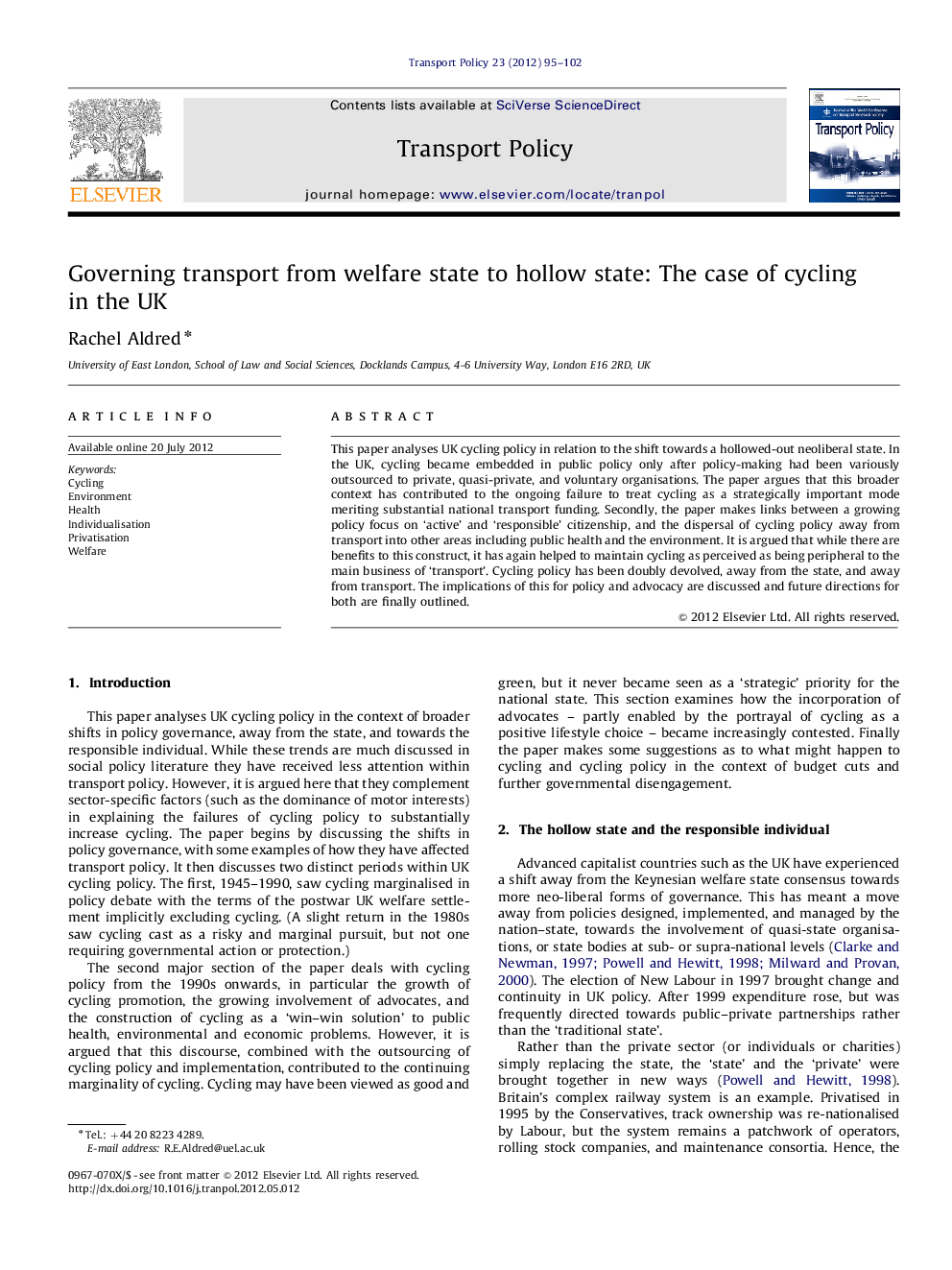| Article ID | Journal | Published Year | Pages | File Type |
|---|---|---|---|---|
| 1065175 | Transport Policy | 2012 | 8 Pages |
This paper analyses UK cycling policy in relation to the shift towards a hollowed-out neoliberal state. In the UK, cycling became embedded in public policy only after policy-making had been variously outsourced to private, quasi-private, and voluntary organisations. The paper argues that this broader context has contributed to the ongoing failure to treat cycling as a strategically important mode meriting substantial national transport funding. Secondly, the paper makes links between a growing policy focus on ‘active’ and ‘responsible’ citizenship, and the dispersal of cycling policy away from transport into other areas including public health and the environment. It is argued that while there are benefits to this construct, it has again helped to maintain cycling as perceived as being peripheral to the main business of ‘transport’. Cycling policy has been doubly devolved, away from the state, and away from transport. The implications of this for policy and advocacy are discussed and future directions for both are finally outlined.
► I analyse UK cycling policy in relation to a shift towards a ‘hollowed-out’ state. ► Cycling only became part of UK public policy after this shift. ► Cycling has not been established as an integral part of nation–state led transport policy. ► Cycling has been dispersed from ‘transport’ towards health and the environment. ► There was a partial integration of advocates into the local state, now threatened.
